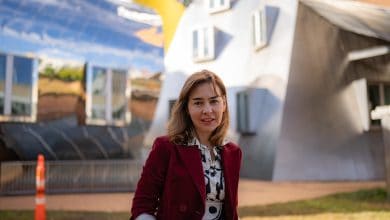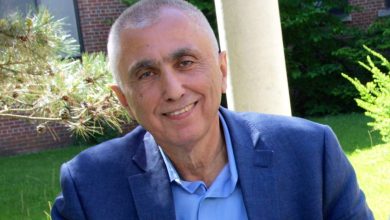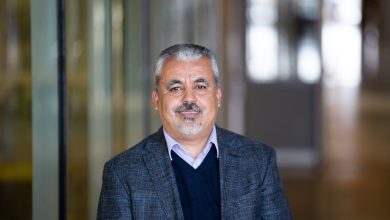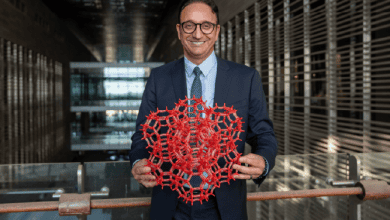Using Economics to Create Better Policies
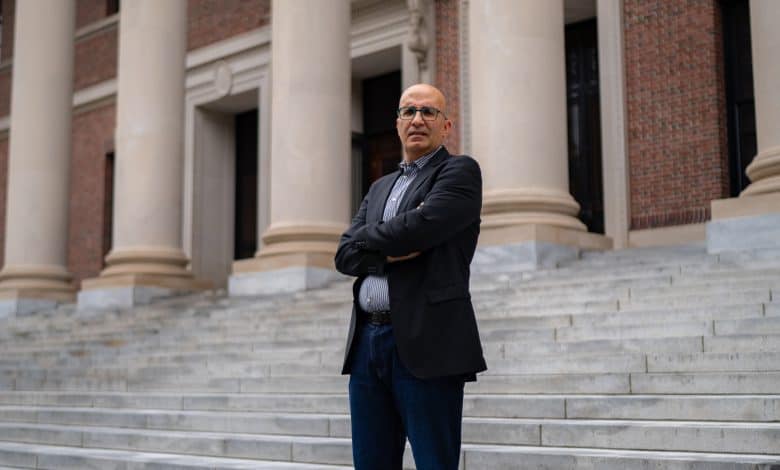
تُصوِّر بعضُ المفاهيم الخطأِ الاقتصاديين على أنهم أفراد تؤرقهم الأرقام الغامضة، وأسعار الفائدة والتضخم، ويعملون في قاعات – مثل قاعات بورصة وول ستريت – مقصورة على أمثالهم. ولكن الاقتصاد هو في الواقع علم اجتماعي يدرس كيف تخصص المجتمعات مواردها المحدودة لتلبية رغباتها واحتياجاتها غير المحدودة. وعلى هذا النحو، فإنه يضطلع بدور مهم في التأثير في عملية صنع السياسات لمعالجة مختلف القضايا المجتمعية، ومن ثَمَّ تحسين حياة الناس. قال إيلي تامر، أستاذ لويس بيركمان للاقتصاد في جامعة هارفارد Harvard University، والفائز بـ «جائزة الكويت للعلوم الاقتصادية والاجتماعية»، للعام 2022، من مؤسسة الكويت للتقدم العلمي: «إن الاقتصاديين الأكثر تمرُّساً يصيرون صانعي سياسات أكثر براعة… وإذا عادوا إلى بلدانهم، فسيكونون قادرين على تشكيل حكومات أفضل، خاصة في العالم العربي». وأضاف: بالتأكيد يمكنك إنشاء شركة حاسوب في بيروت، والاستعانة بمهندسي برمجيات «لكن بيروت ولبنان في حاجة إلى محافِظي بنك مركزي أفضل بكثير؛ فسياساتهم ستؤثر في الجميع في لبنان، وليس فقط في الأغنياء [أو من نالوا قسطاً جيداً من التعليم]». هذه جميعها أسئلة يجيب عنها الاقتصاديون طوال الوقت.
Born in Zahle, Lebanon, in 1971, Tamer grew up in a middle-class family that provided him with a private French-Arabic education. “I had a good life in Lebanon, except for the war,” he said.
The Lebanese Civil War was raging in 1988 when he was finishing his upper secondary education. “For people like me, the dilemma was either to stay and study at the Lebanese University, which was going through a rough time in 1988, or leave, typically to France or the U.S.” Tamer had always looked up to some cousins studying in Austin, Texas, and at 16, he found himself in the U.S. “Suddenly, I had the key to an apartment to myself, with no one there. I had to pay rent, cook for myself,” he said. He also needed intensive English training, though he admits the cultural shock was not too severe due to his Western-oriented education.
At the University of Texas at Austin, Tamer studied electrical engineering. He had previously thought of economics as more of a “philosophy- or history-oriented” subject. However, after attending some graduate economics classes out of curiosity, he was hooked.
“I was amazed at how advanced the field was and how broad the questions were,” he said. “People were using stats and data to tackle issues like inequality, health outcomes, and even problems in Africa.” After finishing his bachelor’s degree, he applied to graduate schools and was accepted into Northwestern University in Chicago, where he graduated in 1999—and where he met his wife.
His thesis, Studies in Incomplete Models, performed so well that it landed him a job as an assistant professor of economics at Princeton University, where he was promoted to full professor in 2004. Already married, he and his wife debated whether to stay in New Jersey or return to Chicago, where her extended family lived. Chicago won, and Tamer joined Northwestern’s Economics Department in 2004. In 2013, while driving to Wisconsin, Tamer received a call from Greg Mankiw, a prominent economist and the Robert M. Beren Professor of Economics at Harvard. “Yesterday, the faculty met, and we voted to offer you a position,” Mankiw said. After several months of discussions, Tamer joined Harvard’s economics faculty in 2014.
Tamer, winner of the Kuwait Prize in financial and banking sciences, has published around 41 research papers in peer-reviewed journals. His research focuses on econometric theory (dynamic and response models), economic theory (auction and oligopoly models), and game theory. Econometrics applies statistical and mathematical methods to analyze economic data. “Anytime you read a newspaper article quoting economists on numbers or central bank policies, econometrics is behind it,” Tamer explained.
He specializes in partial identification, a concept used in economics and statistics to address situations where data limitations or uncertainty prevent precise estimations of model parameters.
“Let’s say there’s a theory that drinking coffee makes you smarter,” Tamer explained. “You collect data, ask people if they drink coffee, and give them an IQ test. But this data may not answer the main question because there could be an unobserved variable making you both drink coffee and smarter.” Partial identification helps determine whether a given dataset can accurately answer such questions.
While the coffee example may seem trivial, Tamer is working on larger problems. “We have a bunch of subjects in the works. One of them concerns why people are quitting college,” Tamer said. Among all undergraduate students, as many as 40 percent dropped out.
“We don't know why they quit,” Tamer said. “Some say college is too expensive and more financial aid is needed. Others argue that students learn they are not good at what college demands.” His research seeks to quantify the reasons behind college dropouts. “If policymakers know students quit because of financial reasons, their response will be different from if students leave due to self-discovery,” he added.
Better policymaking leads to more equitable outcomes. Education, according to Tamer, offers particularly high returns on investment. “If you gave me $100, I’d put $95 into building new schools and hiring better teachers,” he said. “The returns on that $95 would be much higher than if spent anywhere else.”
By Stav Dimitropoulos

